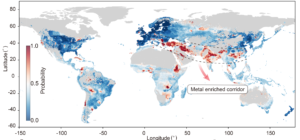The United Kingdom generates the second highest amount of electronic waste per person in the world, according to a new report.
According to new research by PwC for Green Alliance shows the Britain generates more e-waste per person than any country in the world, with the exception of Norway.
This high turnover is particularly problematic for items like smartphones and other IT equipment, where the bulk of environmental impacts happen during the production phase.
Two thirds of people in Britain surveyed are often frustrated by products that don’t last and three quarters want the government to do something about it.
THereport says that the UK should act swiftly post-Brexit to improve standards and surveillance and avoid a flood of poorly made products onto the UK market.
This should include setting new UK standards for characteristics like durability, repairability and upgradeabilty and better enforcing existing standards.
For instance, consumers say they want phones that last more than five years, but they normally last just two to three years.
New research by PwC for Green Alliance shows that extracting 75g of metals used in a typical smartphone requires at least 6.5kg of ore to be mined.
The phone manufacturing process emits 60kg of CO2 equivalent, which is more than 300 times the weight of the finished product.
One reason consumers are being exposed to shoddy appliances is poor enforcement of product standards, with up to a quarter of those sold not meeting current standards for energy efficiency.
According to the report, this means that the UK is missing out on 800,000 tonnes of CO2 equivalent savings a year, and that those UK businesses producing goods to high standards are being undercut by others that get away with selling poorer quality products.
‘Even before the pandemic, people were frustrated by products that didn’t last,’ said the Green Alliance’s head of resource policy, Libby Peake.
‘At a time when many experiencing financial difficulties and are becoming more dependent on electronic devices to communicate with family and friends, this couldn’t be more urgent. The last thing we want to see this Christmas is consumers being ripped off with shoddy products because the government is not doing enough to ensure better design and protect people.’
Photo Credit – Stevepb (Pixabay)
















